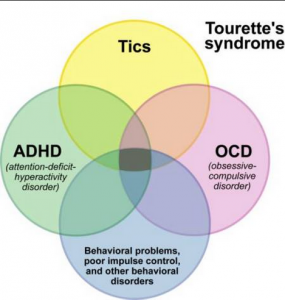Bangor Daily News
Posted Dec. 26, 2013, at 5:46 p.m.
AUGUSTA, Maine — A doctor whose failed petition to have Tourette syndrome added to the state’s list of ailments that can be legally treated with medical marijuana said he’s so frustrated with the process that he’s reluctant to try again on behalf of his patients.
Dr. Dustin Sulak, who runs a practice called Integr8 Health and who is known as one of the state’s leading medical marijuana proponents, said he learned earlier this week that the Department of Health and Human Services has denied his request. Sulak is part of a panel of doctors responsible for making recommendations to DHHS Commissioner Mary Mayhew on the 1999 medical marijuana law and the subsequent 2009 Maine Medical Marijuana Act.
Sulak said he has several patients who suffer from Tourette syndrome, which is a neurological disorder that causes involuntary muscular and verbal tics and outbursts.
“I’ve had several Tourette syndrome patients who have done very well with the use of cannabis,” said Sulak by phone Thursday. “It’s really common, too. People don’t realize how common. … It can make it very difficult for someone to function in public and just about any other situation. People don’t understand why they’re shouting or swearing, and conventional treatments are not very effective.”
One of Sulak’s patients, 28-year-old Peter Hasty of Sullivan, said he was diagnosed with Tourette syndrome in his teens and has tried numerous forms of treatment to control it.
“I’ve tried just about everything out there and none of them controlled the tics well and all of them had severe side effects,” said Hasty, who said the disorder alternatively prevents him from sleeping or keeps him in bed for days, causes chronic pain associated with muscle spasms and, when it’s at its worst, makes it hard or impossible to leave his home. One drug caused him to gain 80 pounds and another caused hand tremors that Hasty said are still present 10 years after he stopped taking it.
“One day someone said, ‘Why don’t you try cannabis?’” said Hasty. “I took two puffs and bam, stillness and peace. There are no other drugs that are effective for this disorder. Everything else is just recycled from a different disorder. Marijuana is something that can really help other people who have no options.”
Sulak said the forms to petition DHHS to add ailments to its medical marijuana list were made available this past summer. He said no one testified against adding Tourette syndrome to the list during a public hearing that was held in November. He said the disease affects people in various ways — some of which open the door for a medical marijuana prescription — but that he isn’t always able to justify its use under Maine law.
“If Tourette’s failed [the DHHS process], I don’t think anything else could succeed through a scientific perspective,” he said. “I’m not sure if this is worth appealing or not. I haven’t seen the department’s reasoning [for the denial].”
A DHHS spokesman said Thursday that he couldn’t answer questions posed by the Bangor Daily News because officials in the department’s Division of Licensing and Regulatory Services were not at work.
Rep. Mark Dion, D-Portland, co-sponsored a bill in 2011 that would have given doctors the authority to prescribe marijuana for any illness or symptom that they thought it could be helpful for, but the bill was killed in the Legislature’s committee process. Dion said there are no laws on the books that regulate when a doctor can administer other prescription drugs and that it should be the same for medical marijuana.
“I think plans of care are something that should be determined between the physician and the patient,” he said. “The immediate decision as to whether or not medical marijuana is amenable to a particular patient is something I thought was outside the purview of a legislative committee.”
There are numerous conditions that can be treated legally with medical marijuana in Maine, ranging from cancer to HIV to Crohn’s disease and post-traumatic stress disorder. Sulak said other states, such as Massachusetts and California, have similar lists but also a clause in their laws that let doctors make decisions on a patient-by-patient basis. Both he and Sulak said they know some people don’t believe in marijuana’s medical applications. Hasty said above all, he doesn’t want to break the law and that he’s planning to try to obtain a medical marijuana permit based on his chronic pain and muscle spasms.
“If I get pulled over they can say I was intoxicated even if I wasn’t smoking; I could lose everything just because of what I need to live and that’s a really sad, hard thing,” he said. “There’s a huge difference between recreational use and medicinal use and for me, it has never been about getting high. This is about disabled people who suffer every single day getting relief that every normal person has and takes for granted.”

